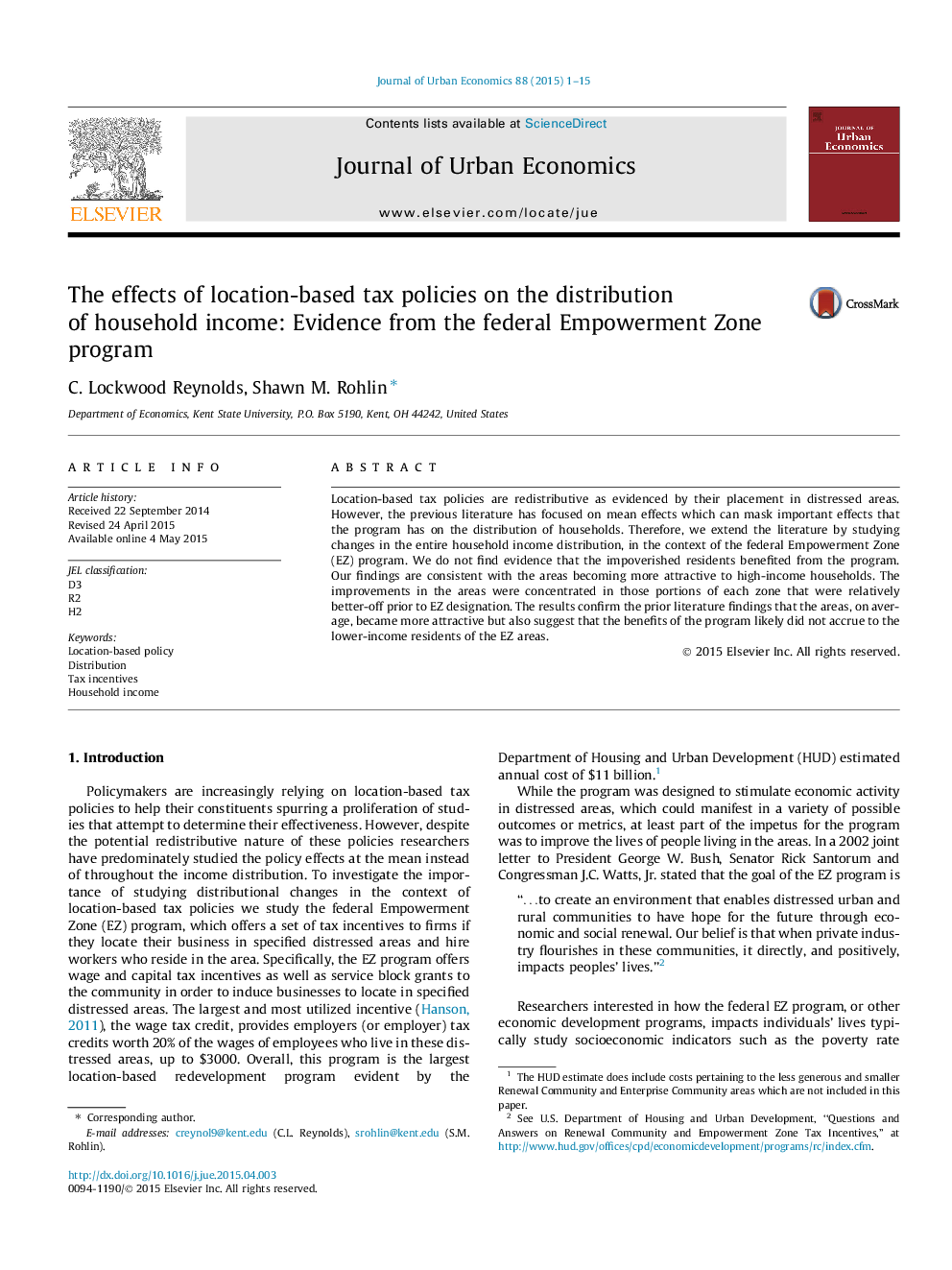| Article ID | Journal | Published Year | Pages | File Type |
|---|---|---|---|---|
| 970657 | Journal of Urban Economics | 2015 | 15 Pages |
Location-based tax policies are redistributive as evidenced by their placement in distressed areas. However, the previous literature has focused on mean effects which can mask important effects that the program has on the distribution of households. Therefore, we extend the literature by studying changes in the entire household income distribution, in the context of the federal Empowerment Zone (EZ) program. We do not find evidence that the impoverished residents benefited from the program. Our findings are consistent with the areas becoming more attractive to high-income households. The improvements in the areas were concentrated in those portions of each zone that were relatively better-off prior to EZ designation. The results confirm the prior literature findings that the areas, on average, became more attractive but also suggest that the benefits of the program likely did not accrue to the lower-income residents of the EZ areas.
